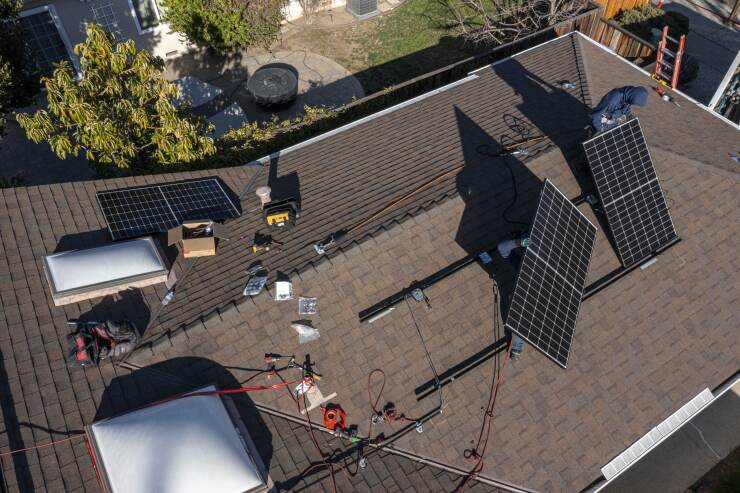Subsidies for clean power would end years earlier in a giant tax and spending bill
It now moves to the Senate, where key Republicans have already balked at some of the House's plans. Some wanted longer transition times before the latest House bill cut those even further.
The House bill is "worse than feared" for clean energy, analysts at Jeffries said in a research note Thursday. They added, however, that "we don't expect this to last into Senate draft."
Shares of Sunrun fell 44% in early trading Thursday. SolarEdge Technologies Inc. sank 17%.
The revised text released Wednesday night marked an extended effort to win over Republican dissidents, including fiscal hardliners who wanted deeper cuts to a series of tax credits created under former President Joe Biden's signature climate law.
The revisions would include ending technology-neutral clean electricity tax credits for sources like wind and solar starting in 2029 and requiring those projects to commence construction within 60 days of the legislation becoming law. The initial version proposed by House Republicans had a longer phase-out time, allowing many of the credits to exist until 2032.
"They would probably amount to a hard shutdown of the IRA," said James Lucier, managing director at research group Capital Alpha Partners, referring to Biden's Inflation Reduction Act. "The initial version of the Ways and Means bill gave investors some hope they could live under the old regime for another couple of years, but now no more."
The House bill would also hasten more stringent restrictions that would disqualify any project deemed to benefit China from receiving credits. Under the new version, those restrictions, which some analysts have said could render the credits useless for many projects, would kick in next year.
At the same time, the revised bill would restore "transferability" of a nuclear production tax credit, which would allow a project sponsor to sell tax credits to a third party, according to a summary of the changes. It also lengthens the amount of time the credit remains in place by allowing projects that have started construction but aren't yet operating to be eligible to receive them, the summary said.
The new bill also would keep the tax credits for advanced nuclear projects and expand existing plants if construction starts by the end of 2028. It also would phase out a consumer tax incentive of as much as $7,500 for the purchase of electric vehicles.
The changes would come on top of limitations on the energy credits that were estimated to save
The legislation is the centerpiece of President Donald Trump's second term agenda. However it faces a delicate path to become law, and may still be altered further.
Alaska Republican Senator Lisa Murkowski and three colleagues have vowed to defend the credits and called for a "targeted, pragmatic approach."
"I am watching right now to see how far the House goes," Murkowski said in an interview on Tuesday.






